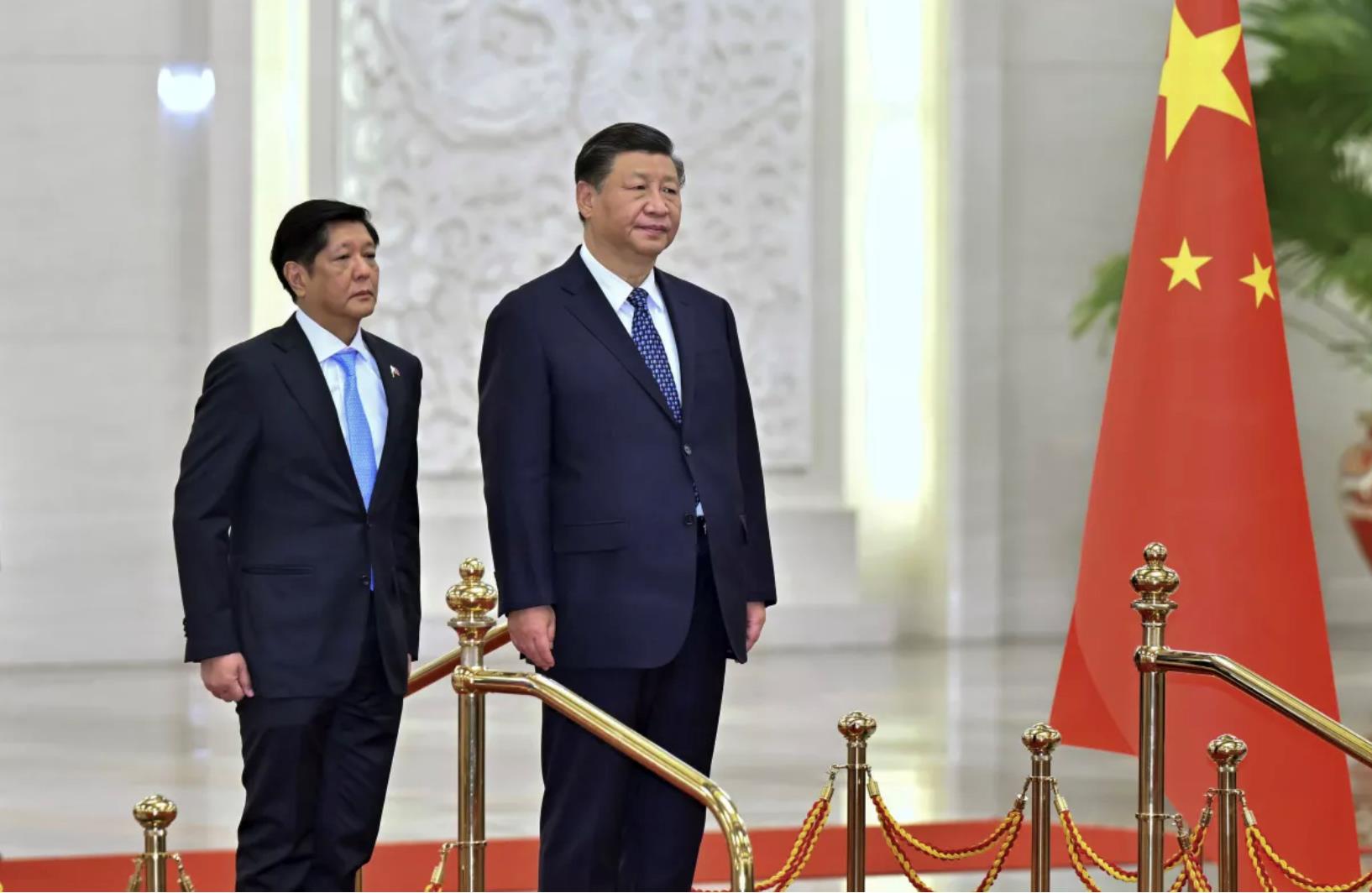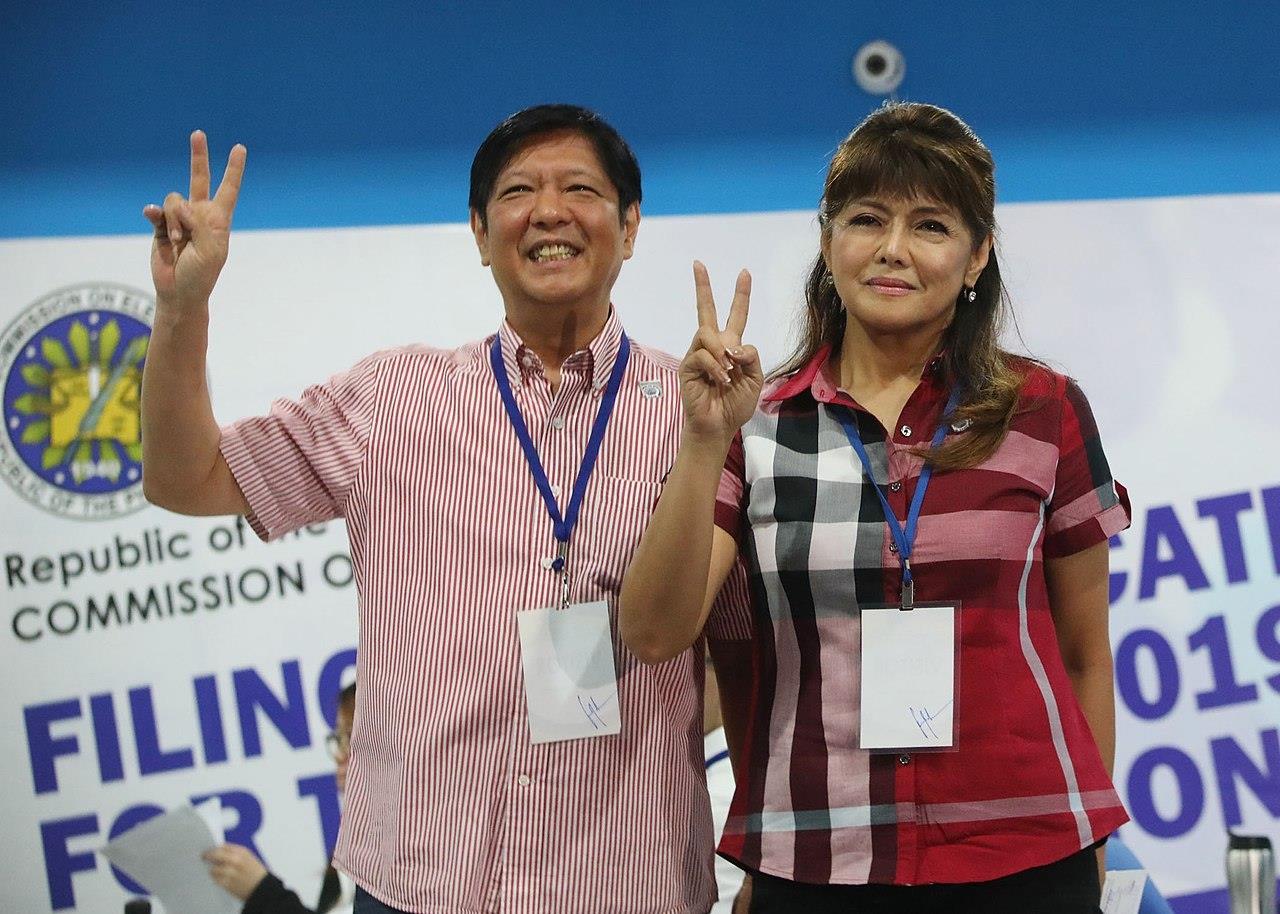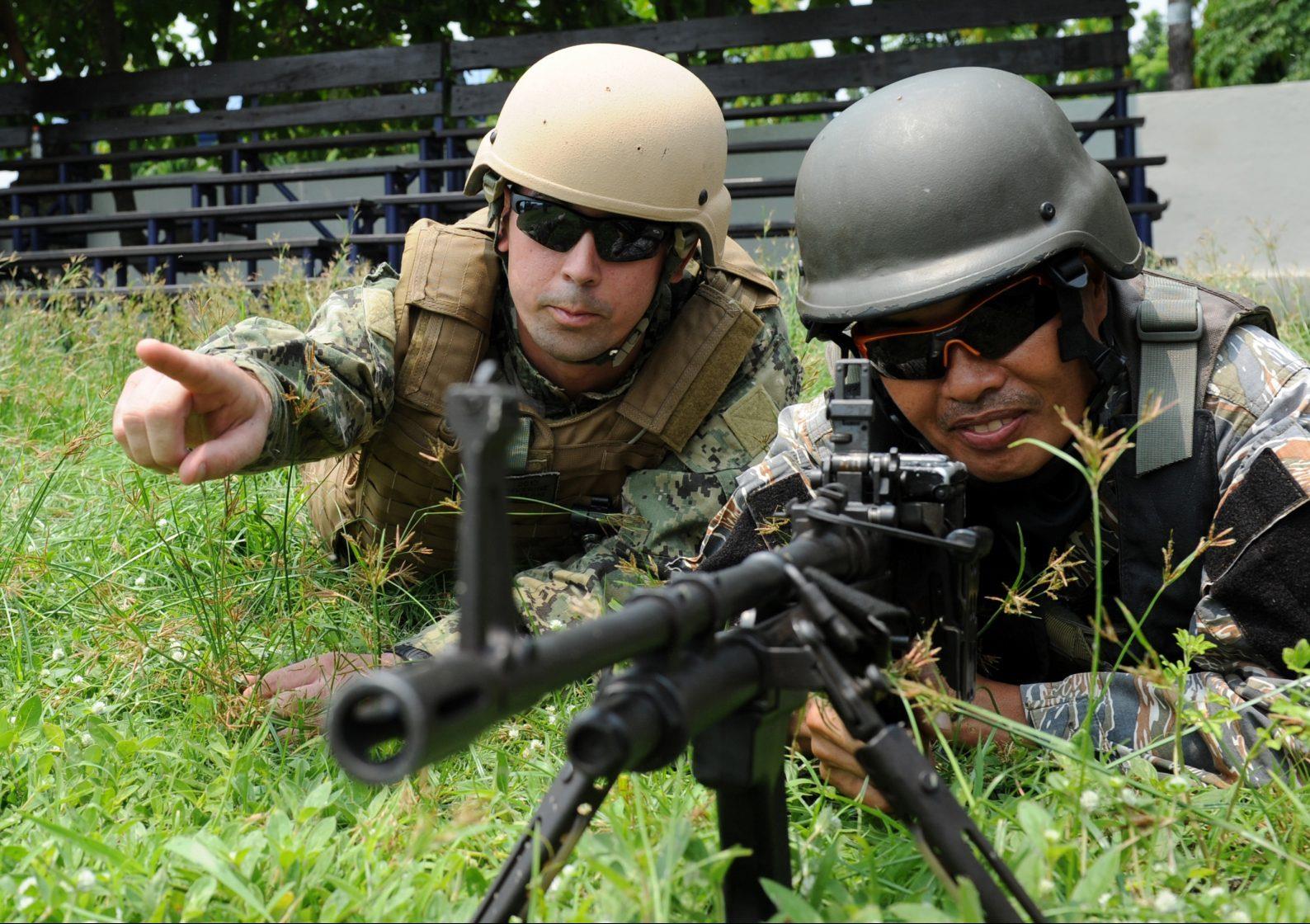(MENAFN- Asia Times) MANILA –“There was a time where we did not have to worry about these threats and the intensification of the competition between the superpowers,” declared President Ferdinand Marcos Jr in a particularly spirited speech before the Armed Forces of the Philippines in late February.
“Now things have begun to change and we must adjust accordingly,” the Philippine leader added, pushing back against criticism of his decision to expand defense cooperation with traditional allies, namely the US as well as Japan and Australia.
That month alone saw Marcos Jr grant expanded basing access to US forces under the Enhanced Defense Cooperation Agreement (EDCA), negotiate new defense deals with Japan, institutionalize high-level defense dialogue with Australia and explore a new US-Philippine-Australia security framework.
The US Defense Secretary Lloyd Austin as well as Australian Defense Minister Richard Marles visited Manila amid a remarkable turnabout in the Southeast Asian country's strategic orientation following six years of foreign policy uncertainty under pro-Beijing president Rodrigo Duterte.
In recent weeks, the Philippines has suddenly emerged as a pivotal element of what some see as a new Quadrilateral (Quad) alliance in the Indo-Pacific. Given the Philippines' proximity to Taiwan, the budding alliance is part of a broader US-led“integrated deterrence” strategy against China, which has ramped up its threats and preparations for a potential invasion of the self-ruling island.
Marcos Jr's geopolitical gamble, which came just a month after his maiden visit to Beijing, has triggered a backlash at home, including from those close to the president.

Philippine President Ferdinand Marcos Jr (left) and Chinese President Xi Jinping listen to the national anthems of their countries onstage during a welcome ceremony at the Great Hall of the People in Beijing, January 4, 2023. Photo: Xinhua
Aside from progressive groups, governors of frontier provinces and staunch supporters of ex-president Duterte who have opposed military cooperation with Washington, no less than presidential sister and Senator Maria Imelda“Imee” Marcos has lashed out at her brother's latest geopolitical move.
The influential senator accused the Philippine government of needlessly provoking China and, by granting American troops access to northernmost bases, potentially dragging the Philippines into a major conflict in the future. Thanks to her staunch opposition, the Philippine military has been forced to rethink the location and nature of major exercises with the US.
A populist by instinct, Marcos Jr's latest foreign policy moves broadly reflect public opinion at home. An early february survey published by the ASEAN Studies Center at the ISEAS-Yusof Ishak Institute in Singapore showed that almost four out of five Filipino respondents chose the US over China.
More than three out of five Filipino respondents expressed“little confidence” or“no confidence” in China to“do the right thing” as a global leader, according to the same survey.
Earlier this year, an authoritative survey by Pulse Asia, a Manila-based polling agency, revealed that more than four out of five respondents backed growing defense cooperation with the US to check China's ambitions in the South China Sea.
What's incredible, however, is that former president Duterte managed to maintain extremely high approval ratings throughout his term in office in spite of his often subservient policy towards China and hostile relations with the West.
This reflects not only the depth of the former president's populist charisma, but also the limited foreign policy bandwidth of average Filipino voters.
This has emboldened Beijing-friendly elements in the Philippines to oppose the Marcos Jr administration's pivot back to Washington by either warning of potential conflict or emphasizing the risk of losing big-ticket investments from China.
Among the staunchest critics of Marcos Jr's foreign policy reset is his sister, who also heads the influential foreign affairs committee in the Philippine senate. In the Southeast Asian country's notoriously dynastic politics , intra-family feuds are far from rare. Back in 2021, an open spat between Duterte and his daughter, Sara, the current vice president, derailed the latter's bid for the highest office.
In recent months, Imee Marcos has repeatedly criticized major decisions by her brother's administration. Last month, she abstained from voting in favor of the ratification of the Regional Comprehensive Economic Partnership Agreement (RCEP), which has been championed by the government's top technocrats.
In the same month, the senator also refused to back her brother's call for“unity” and“reconciliation” during the commemoration of the EDSA People Power revolt, which toppled their father's regime in 1986.
Last year, she also criticized her brother's push for a controversial sovereign wealth fund as well as his plans to dissolve a proposed special economic zone project in Bulacan, which is located just over 30 kilometers from Metro Manila.

President Ferdinand 'Bongbong' Marcos Jr and his sister Senator Maria Josefa Imelda 'Imee' Marcos. Photo: Wikimedia Commons
The seeming“sibling rivalry”, however, has been most apparent on the foreign policy front . During a speech at the Center for Strategic and International Studies (CSIS) forum in Washington last year, Imee Marcos revealed a“seven-point agenda”, which expressly rejected alignment with the US against China in favor of a“rational approach.” She warned against the“melodrama” of any New Cold War, warning her hosts“do not make us choose between the US and China.”
She also backed plans to“re-examine,” the Philippines-US Mutual Defense Treaty (MDT) and Visiting Forces Agreement (VFA), while expressing the need to“open the door to broad engagement with China.”
As the head of the senate foreign affairs committee, Imee Marcos has also repeatedly called for a regional solution, namely under the auspices Association of Southeast Asian Nations (ASEAN), to the South China Sea disputes rather than relying on external powers such as the US.
Meanwhile, Imee Marcos has also berated the Philippine Department of Foreign Affairs' (DFA) numerous diplomatic complaints against China amid intensified disputes in the South China Sea.
“What's the point of sending hundreds of hundreds of protests aside from, well, annoying both parties?,” marcos said during a spirited exchange with Filipino diplomats.
“It's embarrassing that you keep writing to them, and they keep ignoring you. You lose your dignity and respect, and it doesn't look good,” she said in a mixture of English and Tagalog during a senate hearing last year on the South China Sea disputes.
The presidential sister, however, upped the ante following Marcos Jr's decision to grant US forces expanded access under the EDCA, which allows the Pentagon to rotate troops through and install advanced military hardware in key Philippine bases.
In a particularly spirited exchange with Philippine Defense Secretary Carlito Galvez last month, she lashed out at the government's decision to provide US forces access to new bases, which are a“stone's throw” away from Taiwan.
“Because if you look at the stated or intended sites–two in Cagayan, the others in Isabela, the others in Zambales and so on. It clearly indicates that this is the first line in the Taiwan attacks that are projected. Is that correct?” Imee Marcos asked.
“I just want to understand why are you choosing all these sites in Northern Luzon when in fact if it were West Philippine Sea deterrence that is uppermost in our minds, the protection of our territorial sovereignty surely should be on the Western section not purely in the northern,” Marcos added.
In response to constant criticism from the influential senator, the Philippine defense chief said,“We might change the location [of bases to be availed to the Pentagon] depending on the agreement we might be having with the security sector.”
Nevertheless, Imee Marcos warned that the EDCA largely serves America's interests since it's“addressing the escalation of tensions [with China] in the Taiwan straits, [but] not the Philippine interests in the [South China Sea].”
Encouraged by the outspoken influential senator, as well as supporters of former president Duterte, two frontline governors have also publicly pushed back against the EDCA.

A US Navy member (left) gives instructions to his Philippine counterpart during drills at a naval base in Sangley Point, Cavite City, west of Manila. Photo: AFP / Ted Aljibe
“I told them that I don't want any part of the province to be used for any offensive against any nation, near to us. We do not want to quarrel with our neighbors,” Cagayan Governor Manuel Mamba said last month, openly opposing plans to grant US access to bases in the northern province.
Isabela Governor Rodolfo Albano III, meanwhile, emphasized the need for maintaining strong relations with China.
“We have good ties with China, right? Why would we tarnish that? They haven't done anything to us, have they?” the governor of the other northernmost Philippine province added, underscoring the need“to consult people also on what is best for our province.”
Follow Richard Javad Heydarian on Twitter at @richeydarian

























Comments
No comment